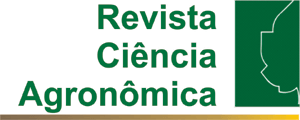Intercropping is a cropping practice widely used in the production of vegetables, and that greatly influences the productivity of these crops, and generates multiple agroeconomic benefits. The aim of this study was to evaluate the yield of sugar beet (Beta vulgaris L.) and coriander (Coriandrum sativum L.) depending on the time of intercropping establishment between these crops. The work was conducted at the Universidade Federal Rural do Semi-arid, Mossoró, RN, during the period from July 2006 to September 2006. The experimental design was of randomized complete blocks with seven treatments and four replications. The treatments consisted of the intercropping of coriander and beet planted at 0, 7 and 14 days after sowing of beet (Treatments 1; 2 and 3), sole crop of beet (Treatment 4) and the sole crops of coriander planted at the same times of intercropping establishment (Treatments 5; 6 and 7). The intercropping of sugar beet with coriander is agronomically feasible, and that this should be planted simultaneously or with the planting of coriander at seven days after sowing of beets, when were also obtained higher values of land equivalent ratio.
Beta vulgaris; Coriandrum sativum; Crop association





